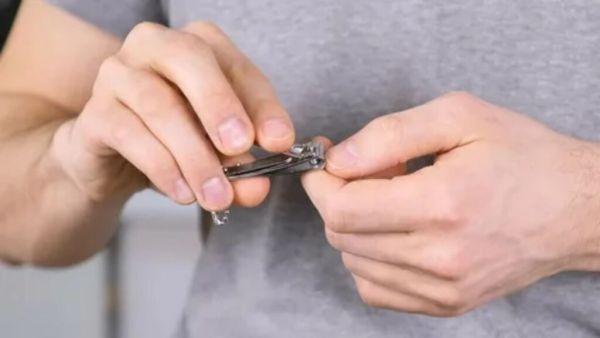Knee clicking: Why your joints pop, when it's harmless, and when it could signal serious damage
ETimes | November 16, 2025 9:39 AM CST

A harmless form of knee clicking , medically known as crepitus, occurs due to tiny air bubbles trapped in the joint fluid. These bubbles release during movement, producing a popping or clicking sound. This type of knee click is common during everyday actions such as walking, bending, or climbing stairs.
When there is no pain, swelling, stiffness, instability, or difficulty bending, the clicking is generally not a cause for concern. Often, it is the result of a tendon or ligament moving naturally over the bone. The knee, being one of the most complex and functional joints in the body, is constantly supporting body weight and enabling movement. Over time, factors such as overuse, minor injuries, cartilage wear, or age-related degeneration can slightly alter how the knee functions, but harmless crepitus does not damage the joint.
When knee clicking signals an underlying problem
Knee clicking should be taken seriously if it is accompanied by pain, swelling, restricted movement, or instability. These symptoms can indicate more serious conditions, including:
These conditions disrupt the alignment and smooth function of the knee, creating noise during movement that is more than just harmless popping.
Knee clicking: Diagnosis, non-surgical treatments, and surgical options for joint health
To identify the cause of knee clicking and assess any structural damage, doctors may recommend X-rays or MRI scans. Imaging helps visualise cartilage, ligaments, and bone structures to determine if further intervention is required. A proper diagnosis is crucial to prevent progression and manage discomfort effectively.
Non-surgical treatment options for knee clicking
For most mild cases, conservative treatment can relieve symptoms and restore knee function:
These approaches help support the knee, reduce friction, and minimise discomfort without invasive procedures.
Surgical interventions for persistent knee problems
If knee clicking is caused by persistent symptoms or advanced joint damage, surgical options may be recommended:
When should you be concerned about knee clicking
Occasional or infrequent clicking in the knee is generally harmless, especially when it is not accompanied by other symptoms. Many people experience harmless knee pops during everyday movements such as walking, bending, or climbing stairs. These sounds are often due to normal joint mechanics, like tendons or ligaments moving over the bone, or the release of tiny air bubbles in the joint fluid.
However, if knee clicking becomes more frequent or occurs alongside certain warning signs, it may indicate an underlying joint problem that requires medical attention. These red-flag symptoms include:
Paying attention to these signs is important because they can indicate conditions such as meniscus tears, ligament injuries, or early osteoarthritis.
Who should evaluate knee clicking
Instead of immediately consulting a surgeon, it is often beneficial to seek a physician trained in interventional orthopedics. Unlike surgeons, who primarily offer surgical solutions, interventional orthopedics specialists focus on nonsurgical treatments to heal and restore joint function.
Interventional orthopedics physicians are typically board-certified in Physical Medicine and Rehabilitation (PM&R) or anesthesia, with advanced training in musculoskeletal medicine. They use orthobiologics, which are natural biological substances in the body, to promote faster healing of muscles, tendons, ligaments, and bones. Orthobiologics can include platelet-rich plasma (PRP), stem cells, or other regenerative therapies that support tissue repair without surgery.
By consulting an interventional orthopedics specialist, you can explore treatment options that reduce pain, improve mobility, and address the root cause of knee clicking without invasive procedures.
Tips to stop your knee from clicking
The most effective approach to reducing or eliminating knee clicking is identifying the underlying cause. Once the source of the popping is determined, treatment can be tailored for the best results.
For most mild or non-structural causes, conservative therapy is the first line of treatment. This may include:
When there is no pain, swelling, stiffness, instability, or difficulty bending, the clicking is generally not a cause for concern. Often, it is the result of a tendon or ligament moving naturally over the bone. The knee, being one of the most complex and functional joints in the body, is constantly supporting body weight and enabling movement. Over time, factors such as overuse, minor injuries, cartilage wear, or age-related degeneration can slightly alter how the knee functions, but harmless crepitus does not damage the joint.
When knee clicking signals an underlying problem
Knee clicking should be taken seriously if it is accompanied by pain, swelling, restricted movement, or instability. These symptoms can indicate more serious conditions, including:
- Meniscus tears that affect cushioning in the knee
- Ligament injuries that compromise stability
- Patellar tracking disorders where the kneecap does not move smoothly
- Early osteoarthritis causing cartilage degeneration and joint friction
These conditions disrupt the alignment and smooth function of the knee, creating noise during movement that is more than just harmless popping.
Knee clicking: Diagnosis, non-surgical treatments, and surgical options for joint health
To identify the cause of knee clicking and assess any structural damage, doctors may recommend X-rays or MRI scans. Imaging helps visualise cartilage, ligaments, and bone structures to determine if further intervention is required. A proper diagnosis is crucial to prevent progression and manage discomfort effectively.
Non-surgical treatment options for knee clicking
For most mild cases, conservative treatment can relieve symptoms and restore knee function:
- Physiotherapy and strengthening exercises to improve joint stability
- Anti-inflammatory medications to reduce pain and swelling
- Lifestyle modifications such as maintaining a healthy weight and adjusting activity levels
These approaches help support the knee, reduce friction, and minimise discomfort without invasive procedures.
Surgical interventions for persistent knee problems
If knee clicking is caused by persistent symptoms or advanced joint damage, surgical options may be recommended:
- Arthroscopy is a minimally invasive procedure where surgeons insert a camera and instruments through small incisions to repair cartilage, smooth joint surfaces, or remove loose fragments. Recovery is typically faster compared with traditional open surgery.
- Partial or total knee replacement may be advised in severe cases with significant pain, deformity, or cartilage loss. Modern implants and surgical techniques provide excellent long-term outcomes, restoring mobility and improving quality of life.
When should you be concerned about knee clicking
Occasional or infrequent clicking in the knee is generally harmless, especially when it is not accompanied by other symptoms. Many people experience harmless knee pops during everyday movements such as walking, bending, or climbing stairs. These sounds are often due to normal joint mechanics, like tendons or ligaments moving over the bone, or the release of tiny air bubbles in the joint fluid.
However, if knee clicking becomes more frequent or occurs alongside certain warning signs, it may indicate an underlying joint problem that requires medical attention. These red-flag symptoms include:
- Persistent or worsening pain
- Swelling around the knee
- Locking or catching episodes where the knee gets stuck
- Reduced range of motion or difficulty fully bending or straightening the knee
Paying attention to these signs is important because they can indicate conditions such as meniscus tears, ligament injuries, or early osteoarthritis.
Who should evaluate knee clicking
Instead of immediately consulting a surgeon, it is often beneficial to seek a physician trained in interventional orthopedics. Unlike surgeons, who primarily offer surgical solutions, interventional orthopedics specialists focus on nonsurgical treatments to heal and restore joint function.
Interventional orthopedics physicians are typically board-certified in Physical Medicine and Rehabilitation (PM&R) or anesthesia, with advanced training in musculoskeletal medicine. They use orthobiologics, which are natural biological substances in the body, to promote faster healing of muscles, tendons, ligaments, and bones. Orthobiologics can include platelet-rich plasma (PRP), stem cells, or other regenerative therapies that support tissue repair without surgery.
By consulting an interventional orthopedics specialist, you can explore treatment options that reduce pain, improve mobility, and address the root cause of knee clicking without invasive procedures.
Tips to stop your knee from clicking
The most effective approach to reducing or eliminating knee clicking is identifying the underlying cause. Once the source of the popping is determined, treatment can be tailored for the best results.
For most mild or non-structural causes, conservative therapy is the first line of treatment. This may include:
- Targeted physiotherapy to strengthen muscles around the knee and improve joint stability
- Activity modifications to reduce strain on the joint
- Anti-inflammatory strategies to reduce swelling or irritation
- Addressing the cause with appropriate therapy can help restore normal knee function and reduce unwanted clicking over time.
READ NEXT
-
Cutting nails in these 4 days leads to poverty! Know which day and time to cut

-
There is a temple of Vaishno Devi in Vrindavan too, the history is quite interesting, definitely go there to pay obeisance.

-
If you do not take care of hair in winter, then due to these mistakes a layer of dandruff may accumulate on the head.

-
Can drinking ‘more water’ really protect your kidneys? Know the surprising truth about chronic kidney disease, hydration, and common myths

-
Today’s Horoscope 16 November 2025: Today, with the grace of Sun God, the luck of these 3 zodiac signs is going to open.
